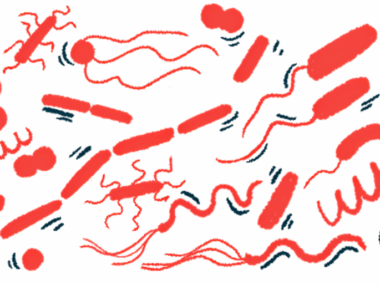Diet, Agricultural Chemicals May Affect Disease Risk
Written by |

People who consume more coffee and fish are less likely to develop Parkinson’s disease, according to a new study from Italy.
Results also indicate that exposure to agricultural chemicals may increase the risk of Parkinson’s.
The study, “Relationships of Nutritional Factors and Agrochemical Exposure with Parkinson’s Disease in the Province of Brescia, Italy,” was published in the International Journal of Environmental Research and Public Health.
Exactly what causes Parkinson’s disease to develop remains incompletely understood. Certain genetic mutations, such as variations in the SNCA gene, can increase the risk of Parkinson’s, but most occur in people with no family history of the disease.
A number of environmental and lifestyle factors — such as smoking or exposure to heavy metals — have been implicated in the development of Parkinson’s. Diet and exposure to agricultural chemicals also have been implicated as important factors affecting Parkinson’s risk. However, to date, individual studies have considered diet or chemical exposure, rather than looking at both factors concurrently.
“To address these research gaps, we conducted a hospital-based case-control study in the province of Brescia, Northern Italy. We aimed to assess the association of nutritional factors and agrochemical exposure with the risk of [Parkinson’s],” the researchers wrote.
The team’s analysis included data on 347 people with Parkinson’s and 389 without the disease (controls). The Parkinson’s patients were slightly older on average (71.9 vs. 69.5 years), and were generally more likely to have a family history of Parkinson’s or a history of exposure to agricultural chemicals or metals. Parkinson’s patients also were generally more likely to have been born in the province of Brescia.
The researchers constructed statistical models to look for the associations between various factors and Parkinson’s risk. In addition to data on diet and chemical exposures, this included data on sex, age, socio-economic status, head injury, family history, smoking, metals exposure, and SCNA gene variations.
The final model confirmed some known Parkinson’s risk factors — for example, a family history of Parkinson’s, exposure to heavy metals, and certain variants in the SCNA gene all were strongly associated with an increased risk of the disease.
The models also showed that people with a reported history of exposure to agricultural chemicals were nearly twice as likely to get Parkinson’s.
“The exposure to agricultural chemicals — organochlorines, pesticides, fertilizers, herbicides — has been found to be associated with an increased risk of disease. This finding confirms the neurodegenerative effects of some agrochemicals,” the researchers wrote.
Being born in Brescia also was associated with an increased Parkinson’s risk. Notably, in the initial model, eating more fruits and vegetables was tied to a reduced Parkinson’s risk, but this association was not significant once the researchers included in the model statistical interactions between fruit intake and province of birth.
“One of the possible explanations of this unexpected result … may be due to the consumption of unwashed fruit and vegetables, resulting in the oral absorption of agrochemical,” the researchers wrote, noting that “the soil of the Brescia province in is known to be highly contaminated by manganese and other metals.”
More detailed analyses of dietary data indicated that people who consumed more coffee and more fish were generally less likely to develop Parkinson’s.
“Nutritional factors, agricultural chemicals and occupational metals exposure were confirmed as important determinants that may increase (or decrease) the risk of [Parkinson’s],” the scientists concluded. “Whilst agrochemicals and metals were associated with an increased risk of disease, the consumption of fish and coffee resulted as protective nutritional factors.”
“Further prospective longitudinal studies are needed to better understand the interrelation between nutritional factors and toxic exposure in the origin of [Parkinson’s],” they added.



